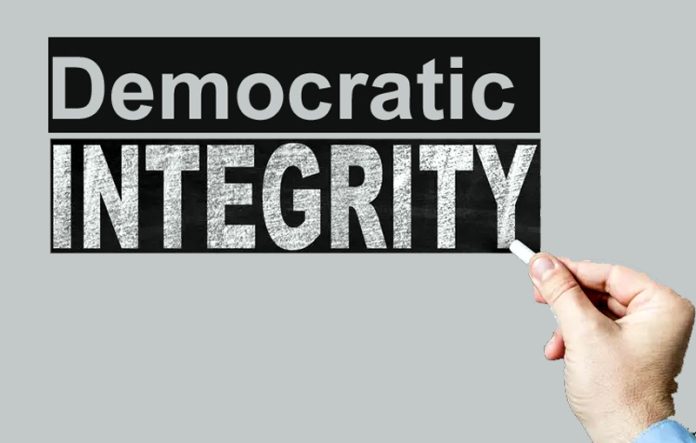In a significant move to uphold the sanctity of democratic processes, the Election Department of the UT of Jammu and Kashmir has taken stringent action against 40 Government employees for violations of the Model Code of Conduct (MCC). This robust response highlights the Election Commission’s zero-tolerance policy towards any infringement that threatens the fairness and transparency of elections. The recent communiqué detailing these actions underscores the critical importance of adherence to electoral norms and the swift consequences of violations. The communiqué specifies the various actions taken against the errant employees: four have been suspended, disciplinary action has been initiated against one, another has been disengaged from services, and inquiries have begun against 34 employees. These measures, based on reports from District Election Officers and complaints from the public, political party members, and Panchayati Raj Institutions, demonstrate a comprehensive approach to monitoring and enforcing the MCC.
The essence of democracy lies in the conduct of free and fair elections, a non-negotiable principle. The actions in J&K are a testament to the Election Department’s commitment to this principle. By addressing violations promptly and transparently, the department ensures that all participants in the electoral process adhere to the rules, maintaining a level playing field for all candidates and parties. The MCC is a crucial framework designed to regulate the conduct of political parties and candidates to prevent any unfair advantage. Violations of this code can undermine the electoral process, erode public trust, and distort the democratic fabric. Therefore, the strict enforcement of the MCC in J&K is not just about penalising individuals but about preserving the integrity of the electoral process.
The role of vigilant District Election Officers and the active participation of the public have been pivotal in identifying and reporting violations. This collaborative approach between the election authorities and the public ensures a robust monitoring mechanism. It also empowers citizens to be guardians of democratic norms, fostering a culture of accountability and transparency. The involvement of the public in reporting MCC violations is particularly noteworthy. This engagement is crucial in a diverse and dynamic region like J&K, where political sensitivities are high and the need for impartiality and fairness is paramount.
Government employees must recognise that times have changed and we are now in the digital age. Social media is highly active, with every action being recorded and shared instantaneously. Today, there is no excuse for a lack of proof, as every mobile device is capable of recording. In this social media era, it is foolish for employees to engage in active politics or attempt to influence voters. Despite Government advisories and clear guidelines outlined in service rules, employees continue to violate these rules. They have only themselves to blame for the consequential actions taken by higher authorities. Government employees are expected to follow instructions from authorities diligently. Most employees are deployed on election duties, making it entirely inappropriate for them to try to influence voters. Each department keeps a close watch on the activities of Government employees, so employees should avoid interfering in politics.
If employees, instead of performing their assigned election duties, are caught violating the MCC, disciplinary action is inevitable.The Election Department’s actions in J&K represent a significant step towards ensuring the integrity of the electoral process. By holding Government employees accountable for MCC violations, the department reaffirms its commitment to free and fair elections. This move serves as a stern reminder that the sanctity of democratic processes must be upheld at all costs, and any deviation from this path will be met with decisive action. Employees have to abide by the guidelines.
Trending Now
E-Paper


